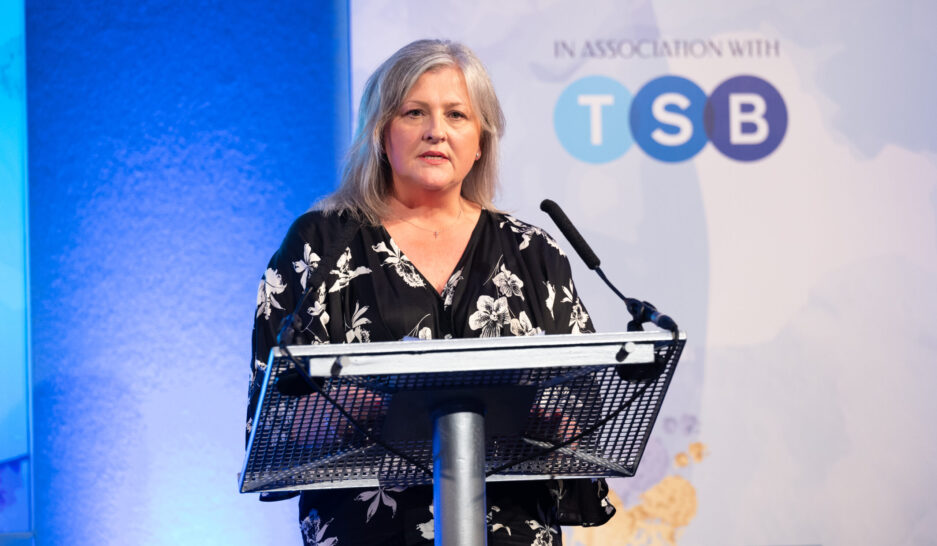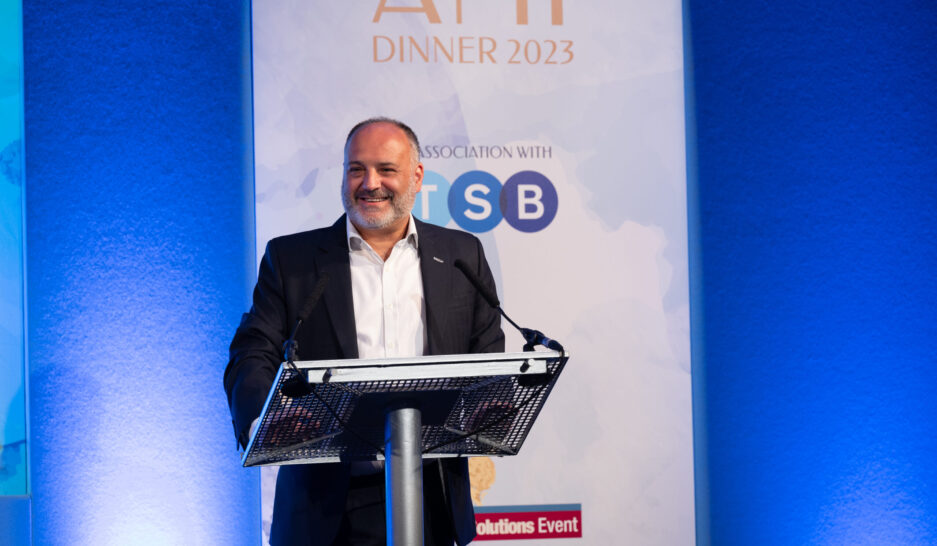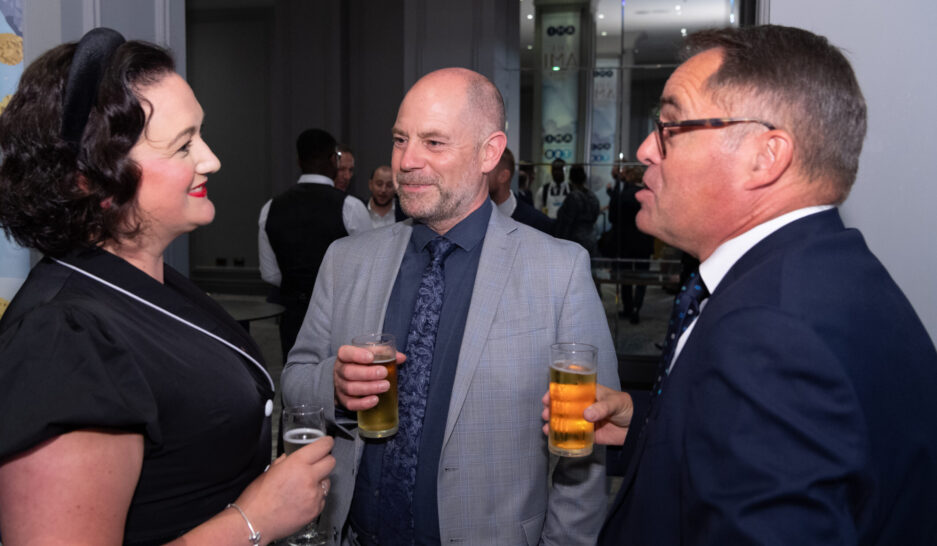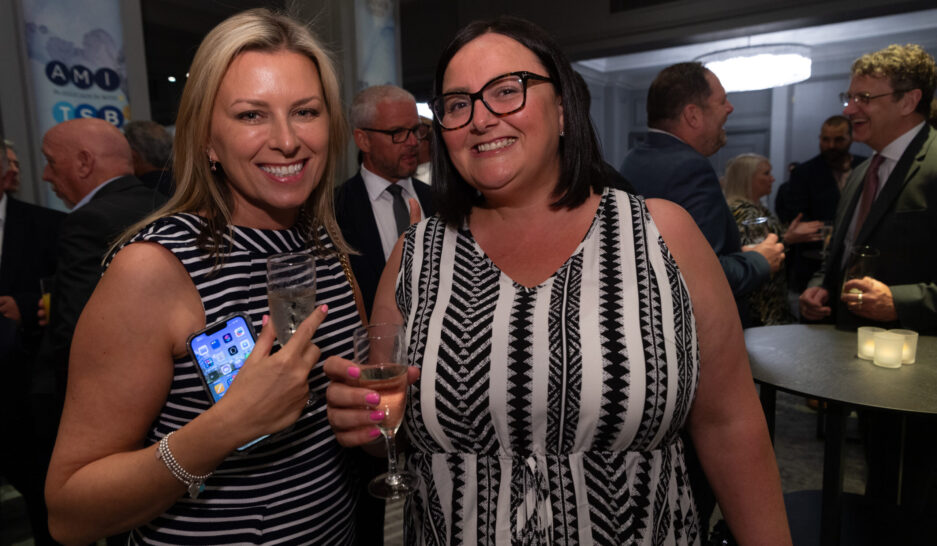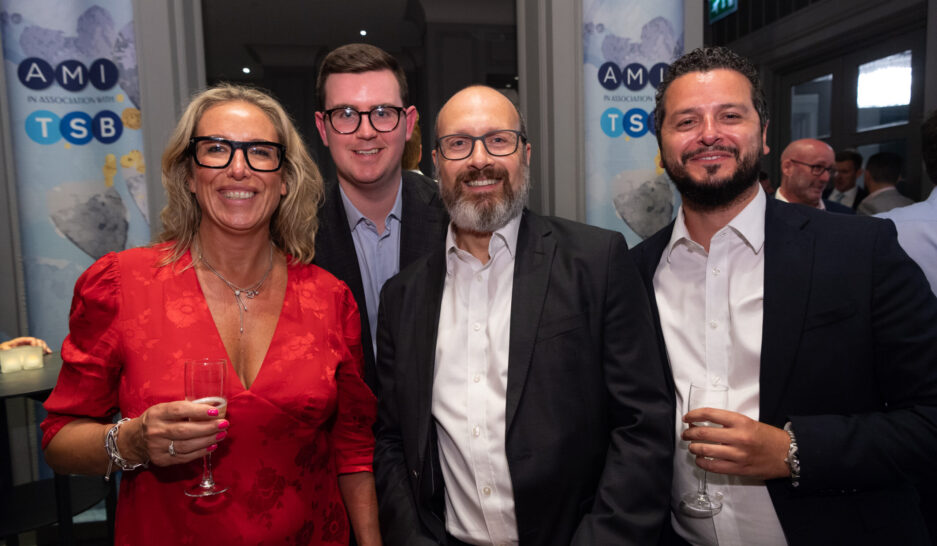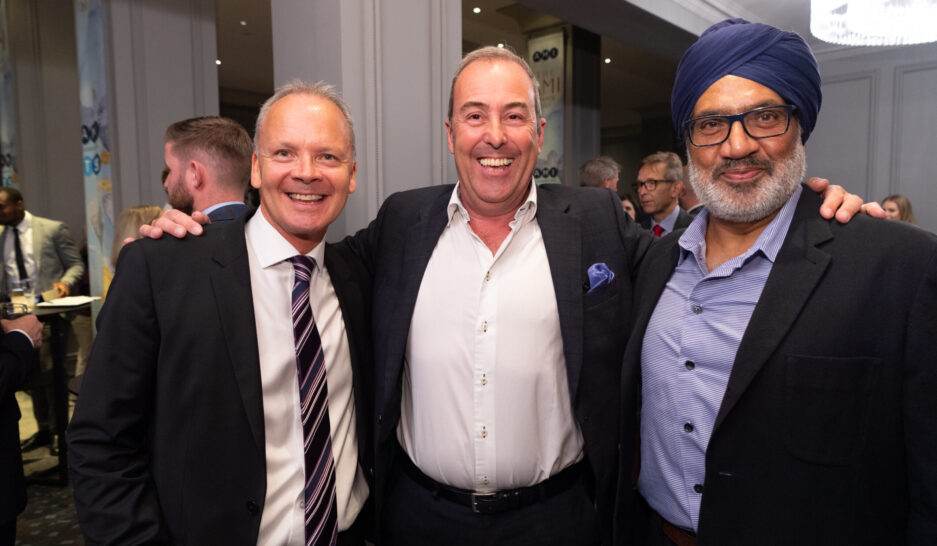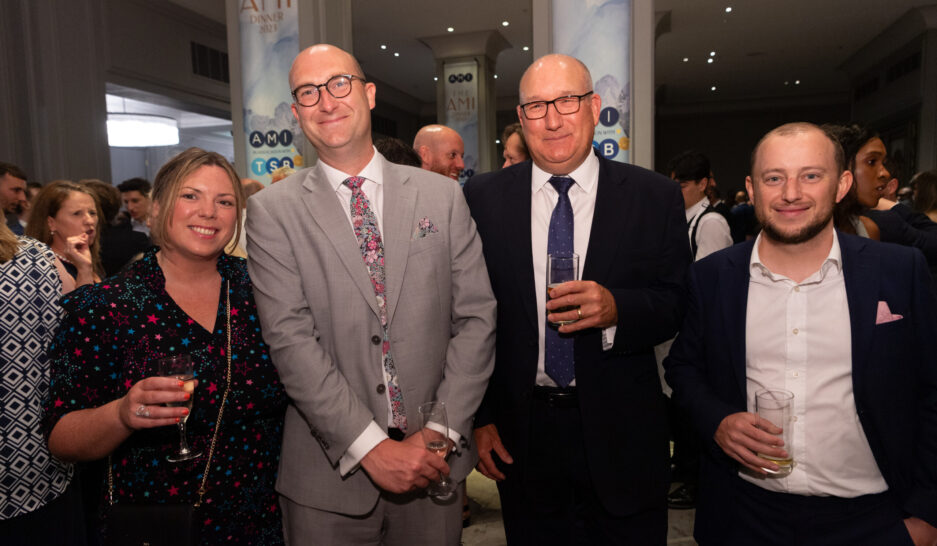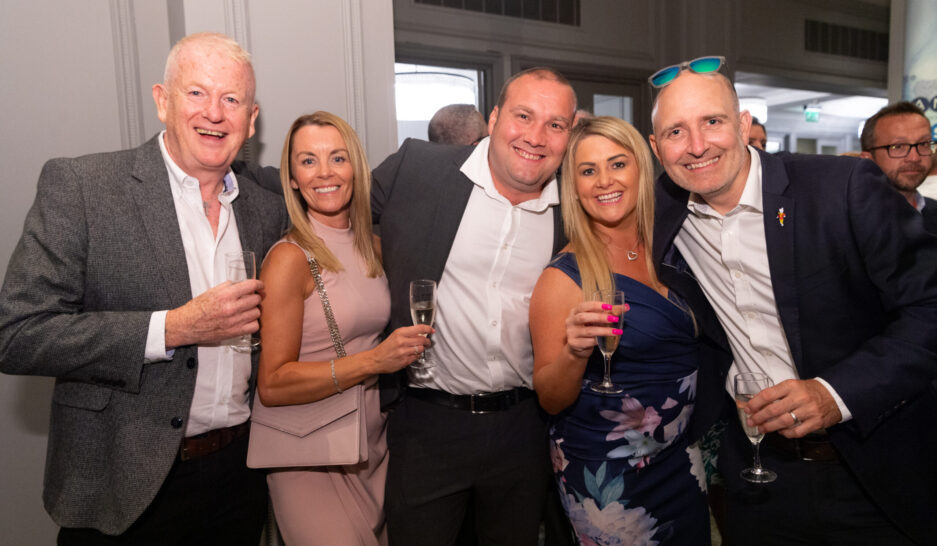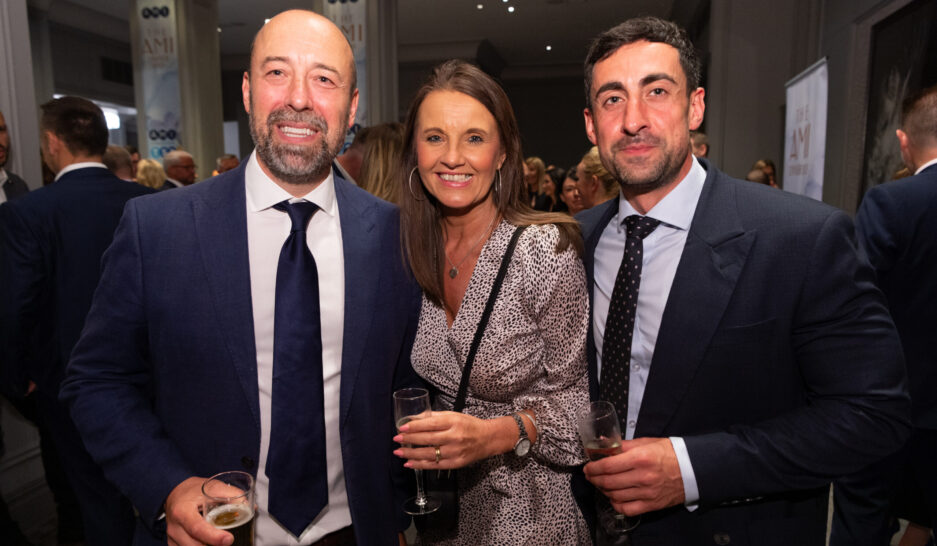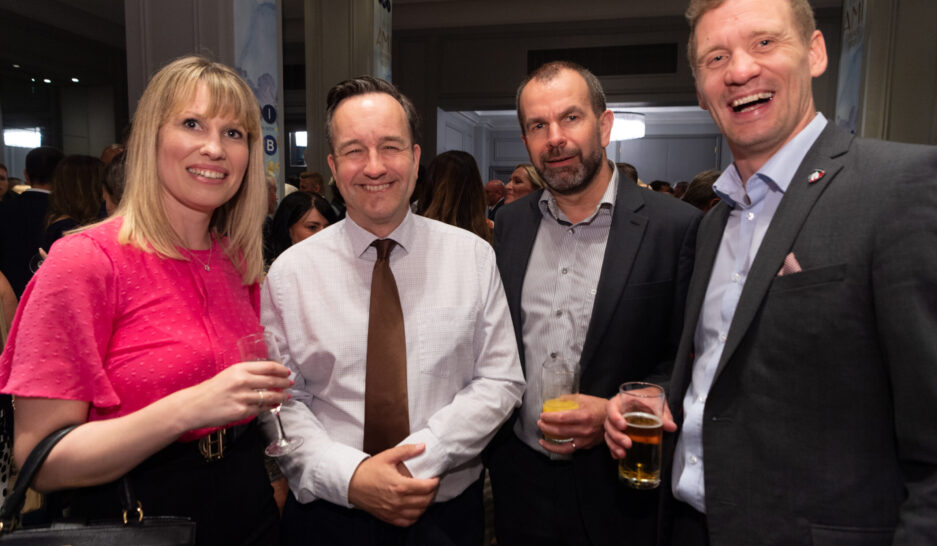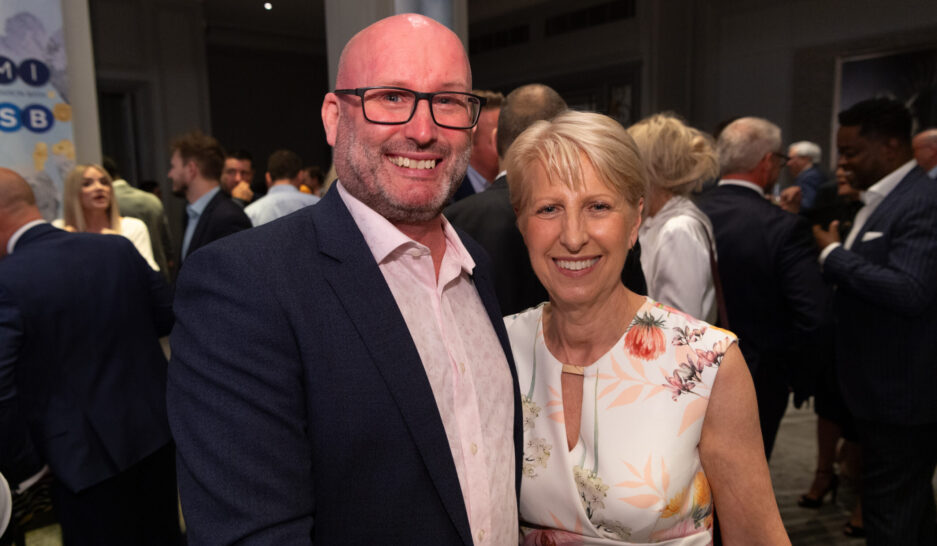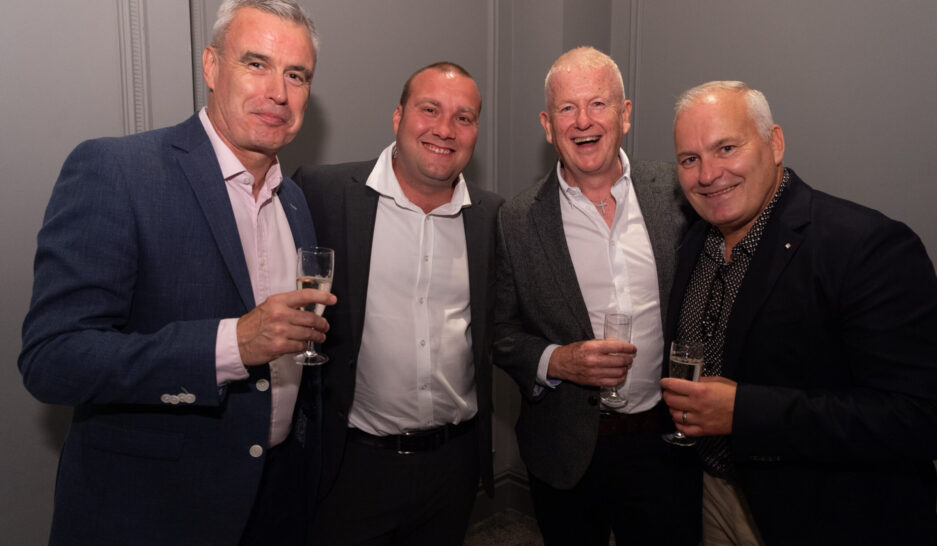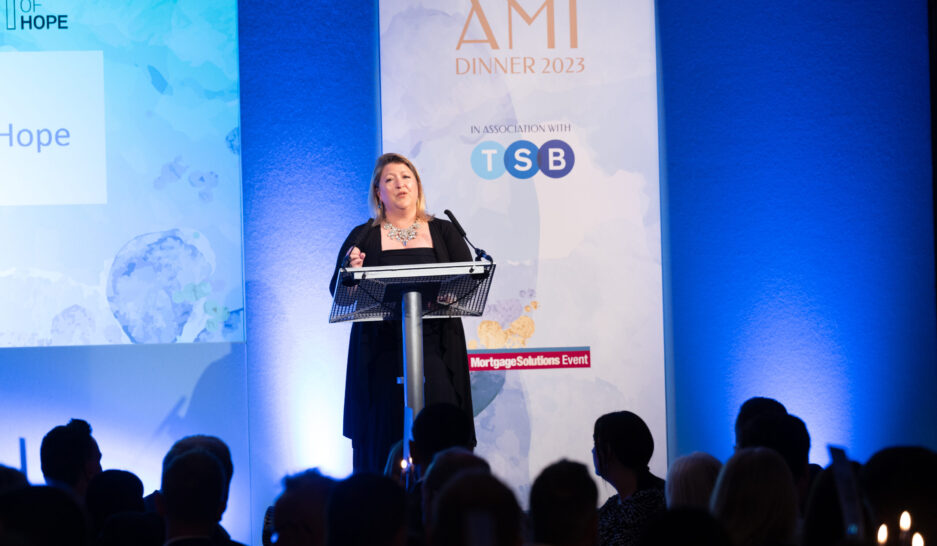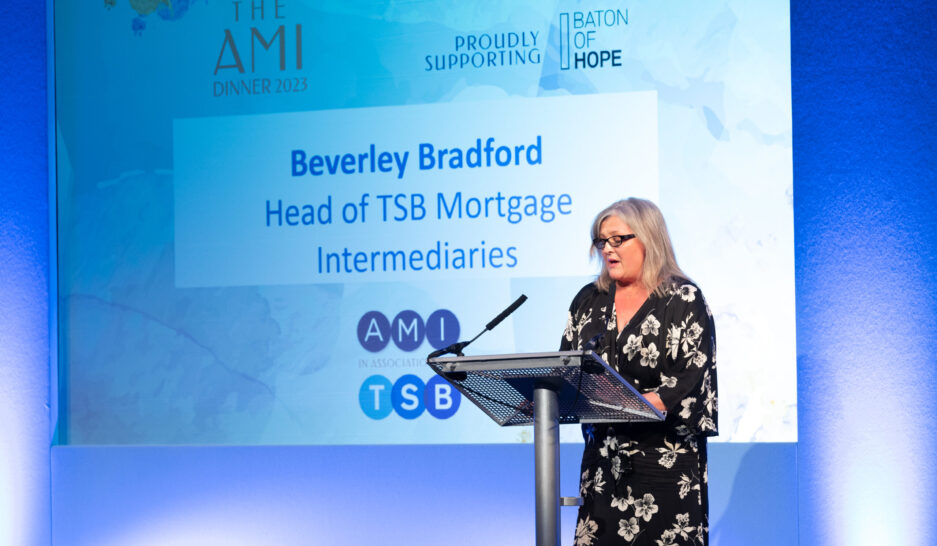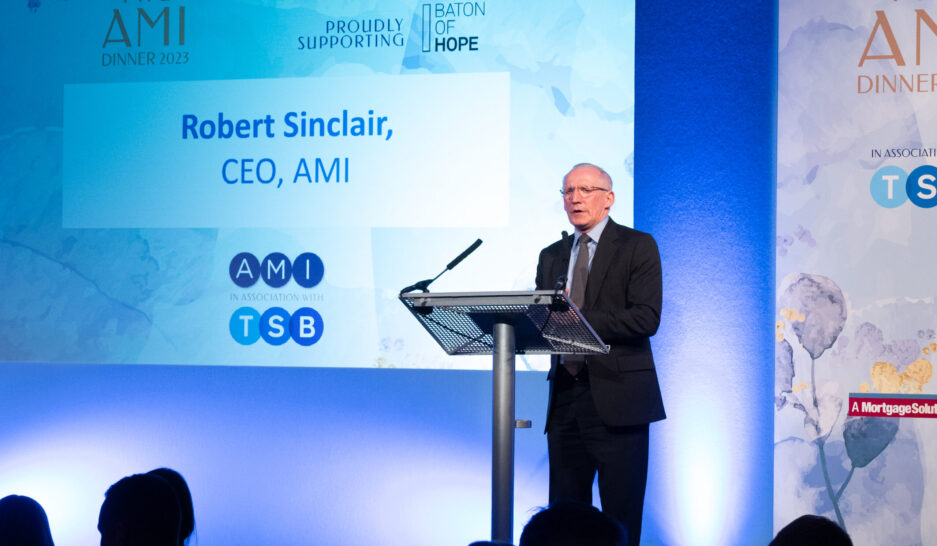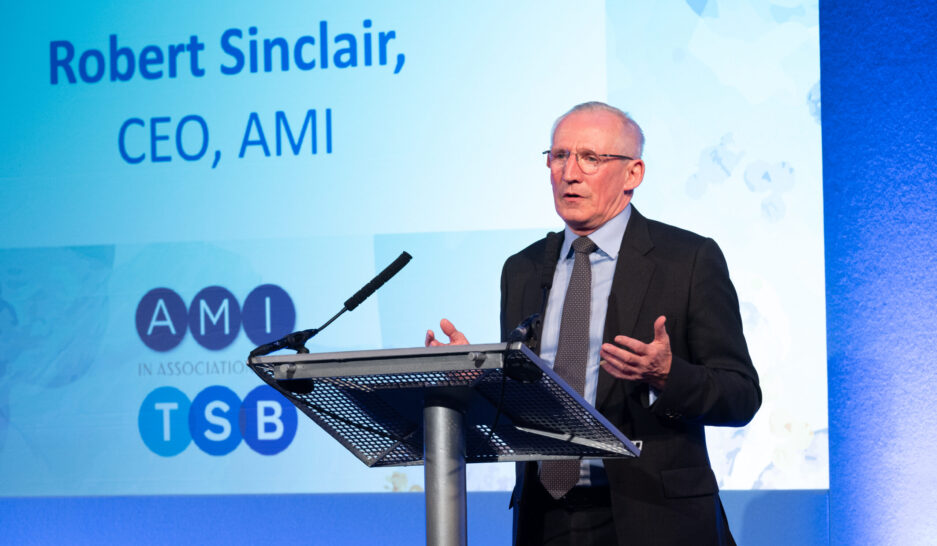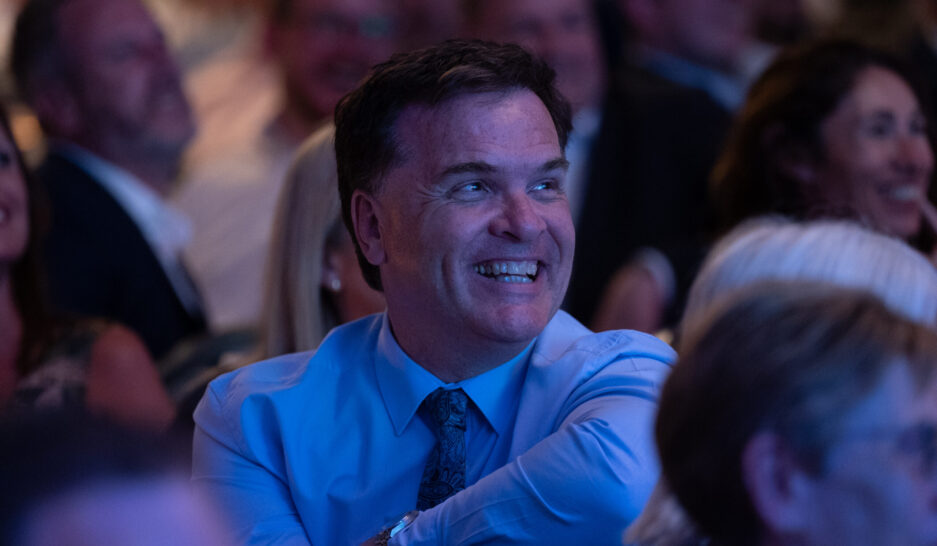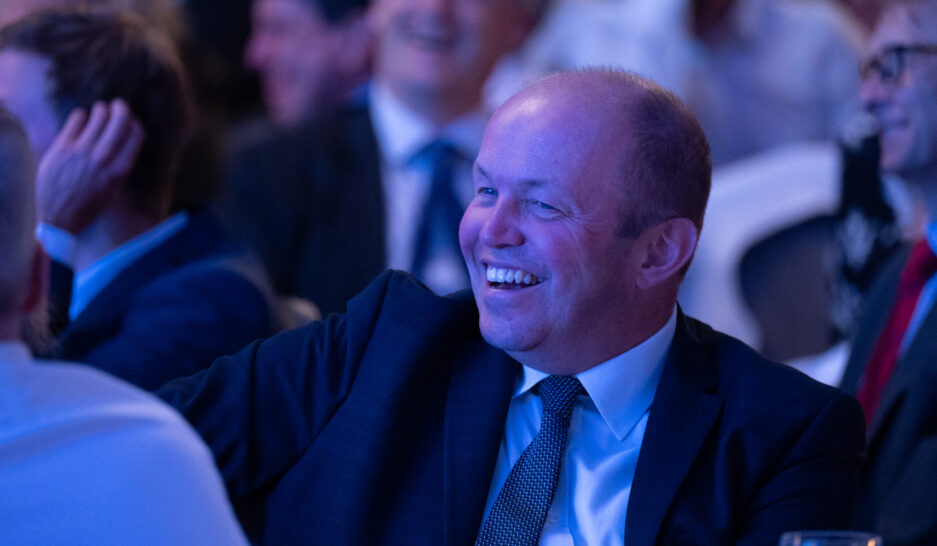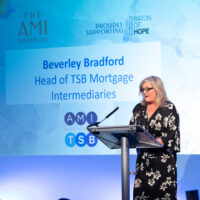


AE3 Media’s Beisiegel shares his day in the life for AMI’s Working in Mortgages
On the Working in Mortgages (WiM) website’s ‘day in the life’ section, Beisiegel (pictured) talks about his involvement in industry events such as the British Mortgage Awards, the Later Life Lending Event (LLLE) and the British Mortgage and Protection Senate.
He also discusses how he manages a healthy work/life balance, as well as the support he has received while working in the mortgage sector.
WiM launched in 2022 to promote professionals in the sector, the different roles, and spotlight the diverse individuals that make up the mortgage market.
The website also aims to encourage recruitment and has a mentoring scheme to provide support for new entrants.
The ‘day in the life’ blog was an idea from Jeffrey Krampah-Williams, national key account manager at Santander for Intermediaries. It has been going for 18 months and was created to provide more information on the profession.
A representative for WiM said: “We aim to show that our industry has many roles on offer – it’s not just boring bank manager-type jobs. From underwriting, to social media manager, to compliance, we’re trying to cover off as many profiles as we can. It is also highlighting that the people doing these roles are from many different backgrounds, with varying education history – you do not need a maths degree to be involved in our industry.
“As we expand on the roles, WiM is collectively building a job description page, as we know everyone has different strengths and it will hopefully guide people into looking at roles that best-suit their strengths. Someone who’s less confident about speaking in front of a crowd may not be comfortable in a business development manager (BDM) role with a lender, but that doesn’t mean there isn’t space for them somewhere in our inclusive industry.”
They added: “We’d love to hear from anyone who thinks their role or experience is unique that they’d like to share.”
Professionals from across the sector contribute to WiM, spanning lender, adviser and recruitment businesses.



Advisers miss out on younger protection clients due to online presence – AMI
The Association of Mortgage Intermediaries’ (AMI) fourth annual protection viewpoint report found that more than a third of firms had no online presence for their protection services.
Of those that do, 53 per cent of adviser firms had a protection section on their website and just 18 per cent had online guides and articles on the topic.
Nearly a quarter of firms said they posted about protection on social media and only five per cent had an online quote form for potential clients.
AMI found that 13 per cent of advisers personally created protection content on social media.
As for the platforms being used, 88 per cent of respondents said they used Facebook, 59 per cent utilised LinkedIn and 59 per cent used Instagram. Just 11 per cent used TikTok or YouTube while 18 per cent were active on X (formerly known as Twitter).
A vital client base
AMI said this could stop them from reaching their desired audiences and the younger generation.
Although TikTok and YouTube were used the least by advisers, AMI found that around 90 per cent of Gen Z use this social media. However, the younger generation tended to believe protection was more important than their older counterparts, with 78 per cent of Gen Z and 76 per cent of millennials saying so, compared to 66 per cent of Gen X and 58 per cent of boomers.
Nearly a third of all consumers said they preferred to use price comparison websites to buy protection, but younger people are less likely to do so compared to older consumers.
A quarter of Gen Z consumers said they would prefer to do this in person, compared to 21 per cent of all adults.
However, respondents did not seem to recognise the value of going to an adviser as a fifth were unable to name any benefits of doing this.
For those who did cite advantages of getting advice, knowledge, regulatory status and being able to speak to a person were named as the main benefits.
Independence of advice
Consumers expressed doubts over the impartiality of advisers, as only 16 per cent believed they were unbiased towards a particular client or insurer. By comparison, 37 per cent of people felt price comparison sites were independent or impartial.
Some 47 per cent of consumers said advisers were motivated by commission when discussing protection.
Robert Sinclair, chief executive of AMI, said: “In this year’s Viewpoint we particularly wanted to understand the behaviours and opinions of younger consumers – our industry’s future customers – and how they potentially differ from older generations. “We’ve seen some positive indicators that present a reason for the industry to feel optimistic, including a higher proportion of Gen Z respondents viewing protection insurance as important compared to older consumers. However, there is work to be done to fully realise this potential.
“As part of this year’s Five Point Action Plan, we call on advice firms to assess whether it’s clear to consumers the role they play in the protection advice process and the value of good advice. Our recommendations also include actions for advisers, providers and AMI itself, as we all need to commit to making a difference if we are to fill the perception gap.”
Julie Godley, director of intermediary at Legal and General, said: “It is encouraging to see that for younger consumers, protection is important. These insights provide fantastic opportunities for advisers and providers alike to adapt, embrace technology and communicate the value they can bring to Gen Z and millennials. But the onus is not just on the adviser.
“Providers also have an opportunity to provide engaging digital content which resonates with a younger customer that advisers can share across several online platforms.”



Where next for equity release? – Crane
It’s also a little difficult to engage with market participants without wondering which side of the ethical line they have been operating on. In fact, there’s a possibility that some of you reading this may well be on the wrong side of that line.
But maybe we have all in some way been complicit – did we collectively do enough to weed out the bad apples? Did those of us advocating for change shout loudly enough?
Summary of the FCA conclusions published in its equity release (ER) market review (published 14 September):
– 400 adverts amended or removed for fear of being inaccurate or misleading
– Product benefits being highlighted without a balanced discussion of risk
– Firms using their FCA regulated status in a promotional manner
– Advisers not properly considering borrowers’ income and expenditure
– Advisers minimising discussions around alternatives
– Firms incentivising sales potentially at the expense of good customer outcomes
– Advisers steering outcomes in favour of lifetime mortgage products
No matter how many times you read it, it gets no better. So, what now?
Firstly, I want to recognise that there are good people in the ER market, but we have to recognise that their good work is being unpicked by the actions of others. For that reason, I think we need a period of meaningful self-reflection about how we’ve got here and to consider if the ongoing issues within the market can really be addressed.
I say “if” because the same issues keep being flagged and surely if the market really wanted to change it would have done so already. The fact it hasn’t suggests it either doesn’t want to or it doesn’t know how to, neither being good news for customers.
That period of reflection also needs to include a review on how effective the market has been at protecting consumers. I take no pleasure in saying that as the work undertaken by the ERC – and SHIP before them – has been material in rehabilitating the product, but a set of voluntary safeguards aren’t much good if the culture of the market and the mandatory advice surrounding them are both inadequate.
Points of reflection (non-exhaustive):
1. What have lenders been doing due diligence wise since the first FCA review?
2. If there is now regulatory evidence that proc-fees can/do/could create product bias, isn’t an advised fee model the logical mitigant?
3. If the market still believes it needs additional safeguards to protect customer outcomes, why isn’t the assessment of affordability one of them?
4. Having established payments are affordable, isn’t there a requirement to produce illustrations and source for non-ER product options as well?
5. How does a customer identify a good adviser from a bad one?
6. If additional safeguards haven’t stopped poor advice from being provided, what will?
7. How can drawdown products meet fair value rules if rate nor facility are guaranteed?
They may not be the right (nor popular) things to ask, but if the market wants to evidence it is listening – really listening – then these are the and sorts of questions I think it needs to face into.
Of course, the other option is to do nothing and wait for the regulator to take things out of the market’s hands. They signposted that there might be further output as part of the retirement income review so it’s not impossible that something more radical – an FCA version of George Osborne and annuities for example – could be on the cards.
Either way, this is surely the last chance saloon.
Regulatory expert responses:
Lynda Blackwell
Non executive director and consultant on regulation and risk management; ex-mortgage sector manager, FCA
There will be a lot of firms out there wiping their brows and thinking they have just dodged another bullet. Yet another weak, ‘must do better’ report from an FCA which has been allowing poor customer outcomes to continue in the sector for years now.
For how much longer will they accept promises from firms that they will do better, when the FCA’s own reviews have demonstrated repeatedly that many have no intention of doing so? Something is seriously wrong with the culture in these firms. Significant failings have been discovered just too often.
Well – don’t be lulled into thinking all’s okay and that the FCA will have moved on from this.
If I were a senior manager or on a board of a firm in this sector, I would be feeling very uncomfortable right now. Waiting for the FCA to discover issues (if they do) and then take enforcement action (if they do) is no longer how it works.
It really is time to wake up and smell the ‘Consumer Duty’ coffee. The directors (executive and non-executive) have a very clear responsibility to ensure their firms are complying with the FCA’s requirements and need to be seen to be providing effective oversight and challenge to ensure this. This is not just a compliance tick-box exercise. This is about driving wholesale cultural change throughout the firm to ensure customers, who are predominantly vulnerable and have very limited choices, are properly advised and supported and get the right solution for them
There are no more hiding places on this. Something is obviously wrong and needs to be fixed and it’s the responsibility of boards and senior management to fix it.
Don’t wait for the FCA to force you to do so: That will not end well.
Robert Sinclair, CEO, AMI
For some years AMI has been challenging the market to consider whether it has the balance right.
The downplaying of the risks, the heavy promotional spend to drive consumer engagement and customer journeys that almost always end up with a lifetime mortgage now need be addressed properly.
I fear that the Equity Release Council is in the last chance saloon on getting real traction with their membership. Their work sets out clearly what should be done, but it appears too many find adhering to their standards difficult. This sector has additional qualifications and FCA rules on top of the standard residential market. A step change in the quality of advice and better monitoring by lenders is now essential.
Consumer Duty sets new challenges and all firms involved in this market need to think through the simple messages delivered by the FCA. This article by Tony Crane asks some difficult questions, that need to be addressed with integrity.
Pat Bunton, strategic adviser, Livemore
The FCA’s latest findings raise many of the same concerns as their quality of advice thematic work published in June 2020 and are also largely aligned with the findings of the Financial Services Consumer Panel in May 2022.
It’s disappointing to see many of the same issues being highlighted again now as the market has had ample time to get this right. I can only imagine that FCA will want to take the lead in setting and policing standards in this sector going forwards and at the very least the viability of serviced interest options should always be considered, meaning a properly documented affordability assessment is a must on every case.



One week to go until Mortgage Vision
There are a few limited places and advisers can register their interest on the Mortgage Vision website http://mortgagevision.net
The roadshow kicks off in Elstree, Hertfordshire, on the 12 September and runs across in September and October in 10 regional venues.
- Tuesday 12 September – Elstree, DoubleTree by Hilton London Elstree
- Wednesday 13 September – Southampton, Novotel Southampton
- Tuesday 19 September – Derby, Pride Park Stadium
- Wednesday 20 September – Bolton, Bolton Stadium Hotel
- Tuesday 3 October – Esher, Sandown Park Racecourse
- Wednesday 4 October – Maidstone, Mercure Maidstone Great Danes
- Tuesday 10 October – Newcastle, Delta Hotels by Marriot Newcastle Gateshead
- Wednesday 11 October – Birmingham, National Conference Centre
- Tuesday 17 October – Exeter, Exeter Racecourse
- Wednesday 18 October – Gloucester, Gloucester Rugby Club
Each event is tailored to mortgage advisers in the areas and gives them a “space where they can learn from each other, share ideas, and enhance their work methods alongside their peers”.
Topics up for discussion include Consumer Duty, value of client data, later life lending, role of specialist packagers, lending solutions for clients with complex incomes, adverse credit and affordability and issues along with protection and general insurance.
Speakers at the event include OSB Group’s group intermediary director Adrian Moloney, senior corporate account manager Ian Scarrott and corporate account manager Andy Williams.
Association of Mortgage Intermediaries’ chief executive Robert Sinclair and senior policy adviser Stacy Penn will be speaking along with Mortgage Brain’s sales director for intermediaries Sharon Marshall and Neil Wyatt, sales and marketing director.
Wyatt said: “Mortgage Vision is the must-attend event for Directly Authorised and Appointed Representative mortgage advisers. Every year, this roadshow gets even bigger and better, bringing together the brightest and best of innovation and collaboration in the mortgage advisory space.
“This year, we’ve three new venues, reaching our greatest number of advisers ever. Those attending will be immersed in insightful discussions led by leading experts and have the unique opportunity to connect with the very best in our industry. Plus, the added advantage of claiming up to 3.5 CPD hours makes it even more rewarding. We hope to see you there.”



AMI and IMLA bring out industry events code of conduct
The code of conduct applies to all events which includes conference related social events at off-site locations, and in related online communities and social media.
The trade bodies said: “We are dedicated to providing a harassment-free and inclusive event experience for everyone, regardless of gender identity and expression, sexual orientation, disabilities, neurodiversity, physical appearance, body size, ethnicity, nationality, race, age, religion or other protected category. Participants asked to stop any harassing behaviour are expected to comply immediately.”
Expected behaviour in the code of conduct includes being considerate and respectful to all members, refraining from “demeaning, discriminatory, or harassing behaviour, materials, and speech” and speaking up if a member observes anything that conflicts with the code of conduct.
It said that if an individual is being harassed or feels uncomfortable, or if an individual notices someone else is being harassed or has other concerns, then they should contact a member of event staff or raise the issue with their host immediately.
Know your boundaries
Unacceptable behaviour listed in the code of conduct includes but is not limited to:
- Intimidating, harassing, abusive, discriminatory, derogatory, or demeaning speech, materials, or conduct by any Participants of the event and related event activities. Many event venues are shared with members of the public; please be respectful to all patrons of these locations.
- Violence, threats of violence, or violent language directed against another person.
- Sexist, racist, homophobic, transphobic, or otherwise discriminatory jokes and language.
- Personal insults, particularly those related to gender, sexual orientation, race, religion, or disability.
- Inappropriate photography or recording.
- Taking of photos within the event environment for use on social media, without the prior permission of the individuals or owners of the content therein.
- Any boisterous, lewd, or offensive behaviour or language, including but not limited to using sexually explicit or offensive language, materials or conduct, or any language, behaviour, or content that contains profanity, obscene gestures, or racial, religious, or ethnic slurs.
- Failure to obey any rules or regulations of the event venue.
AMI and IMLA said that unacceptable behaviour will not be tolerated and anyone asked to cease inappropriate behaviour will be expected to comply immediately.
They continued that further action may be taken including warning or expelling the offender from the event with no refund and for more “egregious behaviour” the trade bodies may temporarily ban or permanently expel a participant from future events.
Expected standards of behaviour
Nicola Goldie (pictured), head of strategic partnerships and growth at Aldermore and a member of IMLA’s management committee, said: “Events play a very important role in the mortgage and insurance industries, presenting great opportunities for networking, promoting community cohesion and building relationships between providers, advisers and associated colleagues.
“The events code of conduct created by AMI and IMLA together through Working in Mortgages sets out the standards of behaviour we all expect from each other at mortgage industry events as professional people.”
Robert Sinclair, CEO at AMI, added: “This code of conduct provides clear guidance to ensure that all attendees feel safe, comfortable and respected at all times, both at live events and in the associated social media sphere.
“We believe adherence to the code will serve to improve the quality and professionalism of our industry events and interactions.”



AMI calls on advisers to complete protection survey
This is the fourth year that the survey has run, and the questions cover the approaches to protection as well as the tools used by advisers. It will also ask advisers about the impact of Consumer Duty and how consumer trust can be improved across the sector.
AMI said the anonymous survey would take five minutes to complete, and non-AMI members are welcome to take part.
The responses will form the trade association’s report on protection in the sector which aims to identify opportunities, barriers and challenges faced by advisers.
Alongside sponsors Legal and General and Royal London, AMI will share the findings at a launch event on 8 November at 9am.
Stacy Penn, senior policy adviser at AMI, said: “I’m delighted that AMI is running its adviser survey for the fourth year and can’t wait to see what this year’s results tell us.
“Adviser views form an important part of our research, particularly as we can compare and contrast consumer and adviser views to see where any gaps lie. We can only do this with the support of the sector and the more survey responses we receive, the better informed our research will be.
“AMI recognises it is a busy time for many mortgage advisers and is grateful for your time and support. The survey will close on 6 September.”
The survey can be found here: https://survey.opiniumresearch.co.uk/p?qif=affb1a49-ba2b-4e3e-8455-a02458f3bb2f&&qsid=cbaf7c61-677e-448c-a18e-0ae92ea15a9c&&smpl=13
More information on Viewpoint can be found here: https://www.a-m-i.org.uk/protection/protectionviewpoint/



AMI publishes action points to improve protection take-up
This follows the association’s five point plan which was published last year and aimed to drive progress in the protection sector.
AMI said it would collaborate with its internal industry working group, Legal and General, Royal London and the wider sectors to come up with ideas on how to tackle the challenges raise by its Protection Viewpoint.
It held an in-person protection workshop in April, and the recommendations from this event helped to shape the recommendations which have now been published.
Suggestions include creating independent advertising campaigns to highlight the importance of protection and protection providers educating advisers on how they can raise the topic when advising. It also proposed considering pre and post-sale communications or advisers using their own experiences to advocate for protection.
The document aims to cover mortgage and protection intermediaries, insurers and technology providers. It is available here: https://www.a-m-i.org.uk/wp-content/uploads/2023/06/AMI-Protection-Workshop-2023-summary-of-ideas.pdf
Shifting the dial
Stacy Penn, senior policy adviser at AMI said: “The Five Point Plan was a key part of last year’s protection Viewpoint and, nearly eight months on, we wanted to provide a progress update to the wider industry. The ideas document released today is one area of this work and is designed to spark new ways of thinking and generate discussion within firms.
“AMI has a list of action points from the workshop and looks forward to working with other industry stakeholders to help shift the dial in the protection space.”
Jennifer Gilchrist, protection specialist at Royal London, said AMI’s original Protection Viewpoint was a great way to work towards improve processes and adapting practices.
She added: “The implementation of Consumer Duty will help to shift the dial by including protection as part of the holistic advice conversation – ultimately enhancing its profile. As part of that we’ll also see greater emphasis on often overlooked elements like writing policies in trust and the completion of beneficiary nomination forms, all of which will help increase confidence in the industry.
“Since the publication of AMI’s Five Point Plan, we’ve continued to listen to advisers and provide support in areas that they said they would appreciate it most. One of those areas is understanding the power of claims statistics and case studies that bring to life what we strive to do on a day to day basis – supporting clients when they need it most. There is no better way of demonstrating the power of protection than by showcasing the benefits of what we do through real-life customer outcomes.”



Mortgage sector in good place for Consumer Duty, says AMI CEO
Speaking at the AMI dinner, Robert Sinclair (pictured) said: “All the conversations I have had with the regulator are, genuinely, for this sector that this isn’t about you.”
Sinclair said that the mortgage market was different to other sectors in financial services as it used a sourcing system, criteria search to run lots of comparisons and then give the best recommendations, whereas in other areas product comparison was not as exhaustive.
“We should stand up and be proud that actually we can say we do good things well, but that is not to say there aren’t things we can be better at.”
He said that there was “debate to be had” around standard variable rates, revert rates, early repayment charges and exit charges but these were “at the edges not at the core of the issue”.
Sinclair also said that broker fees could also come under scrutiny and it would be important to have “very clear policies” on fee structure.
Customers need ‘help and understanding’ around product withdrawals
Regarding short notice product withdrawals and lender repricing, Sinclair said that the “challenge here is at the sharp end of this, there are customers who need help and understanding”.
He urged lenders to “give us [brokers] as much information as you can” so brokers can help educate and inform their clients.
Sinclair also called for brokers to “take that information and use it sensibly and responsibly to make sure that the outcomes we have work for the consumer, and we don’t enter into…warfare that does nothing for either side but will only cause damage to the customer”.
He said that “technology should be making a difference” in rapid withdrawals.
“We are a market that is dominated by intermediaries now, and I don’t see that changing in any way in the future, but working together to get all this to work smoothly is essential.”
Lack of progress on EPC legislation ‘grave dereliction of duty’ from government
Sinclair said that the green agenda was a “concern”, noting that the government had tried to accelerate it with upcoming EPC legislation but had “since abdicated their responsibility in terms of doing anything tangible around this”.
“That’s a grave dereliction of duty, in my view. I do worry about the planet because I do believe that global warming is happening, and I do believe that we face a crisis of our own making. Therefore, we can either wait to be told or we can choose to begin to act,” he said.
Sinclair welcomed innovations from lenders on products, citing Nationwide’s zero green per cent additional borrowing deal as an example.
“The challenge…is to think about doing that in a way that works for the consumer not necessarily for your bottom line,” he noted.
“To every broker in the room, I think it is going to be necessary that you will be the catalyst for all of this, because consumers when they do get interested in this…will see you as a place where they want to come to talk about how to finance changes.”
He said that brokers would have to learn about retrofit, in the same way that they have an awareness of limited company and special purpose vehicles in buy-to-let, so they could point clients in the “right direction”.
Mortgage sector needs to ‘grow information’ about career opportunities
Sinclair said that it was important for the industry to “grow information” about the sector as a career and to market itself better.
“We are not good at trying to tell people in schools or universities what a good industry this is to work in, and we need to find a way of transforming that,” he noted.
He also called for better financial education in schools, so people were more prepared and understood things like tax, mortgages, credit cards, pensions and protection.



‘Blanket call’ for 24-hour withdrawal notice periods could cause ‘huge issues’, AMI chairman says
Speaking at the AMI dinner last night, Andrew Montlake (pictured) said that with his “broker hat on” it would be “remiss of me not to support the call for as much notice as possible”.
He continued: “I am a broker, I suffer like others suffer, like the other practitioners on the AMI board. I watch how it affects the lives and mental health of our brokers. Extensions to midnight are not the solution.”
Montlake said 24 hours’ notice would be “great” but AMI was “not naive enough not to also recognise the huge issues this can cause for our lender partners as well as the stresses and strains it puts on your staff as well”.
He explained: “A blanket call for more notice could cause other issues and sometimes we need to be careful what we wish for. We do not want the lenders to feel like they have to take rates higher earlier or see lending become cautious and difficult.
“There is a solution somewhere in the middle, and we remain open to work together for the best interest of us all.”
Montlake continued that AMI does “incredible work on behalf of brokers and the team works tirelessly and respectfully behind the scenes to represent brokers’ interests” and he was proud to be associated with it.
He said: “You are being represented and sometimes it may be frustrating, but it’s only by working together and understanding both sides you have chance to affect real change.
“We do have so much work to do and it is a journey but I fundamentally believe our industry can be a shining light and I will never ever lose that passion and drive, however long it takes and whatever criticism I get along the way.”
Brokers need to start putting Consumer Duty ‘plans into action’
Montlake praised the work that AMI was doing on Consumer Duty, pointing to its various factsheets and podcast which offers information and advice, as well as mythbusting common misconceptions about the upcoming regulation.
“While the overriding aims of this is of course laudable, I can’t help but think that the time and money would be better spent looking for the real cowboys who will now doubt continue to ignore whatever changes come their way rather than forcing more work onto firms who are trying to do the right thing every day,” he noted.
Montlake continued: “It’s time for all those who have not thought about this seriously to put their plans into action.”
He thanked the Financial Conduct Authority for their “continued openness and engagement” on Consumer Duty and other regulatory subjects.
“The sign of a good relationship is where we can both fight for our respective views to be heard, sometimes vehemently, but always with the respect and knowledge that our views will be taken seriously and we will not fall out,” Montlake added.
Montlake said that AMI had some “great success” with reducing fees for member firms, which he said would allow firms to invest more of their “hard-earned income” back into the company and their people. He noted that AMI would “keep a watching brief” on this issue.
Insurers can be more innovative on protection
Montlake said protection was “still an important foundation” of AMI’s purpose and its third Viewpoint report on this would be coming out soon.
“It shows that there is still more that there is still more work to be done to engage both brokers and clients of the importance of a fully-protected mortgage.”
“I still feel that some insurers can do more, such as more modern products that consumers understand, new ways of marketing, fairer costings and engender more consumer trust in claims stats. This is a work in progress that we will continue to pursue,” he added.



AMI Dinner 2023: the night in pictures
The event was sponsored by TSB, with speeches from Andrew Montlake, chairman of AMI, and Robert Sinclair, chief executive of AMI.
The charity for the evening was Baton for Hope, which aims to be the biggest suicide awareness and prevention initiative in the UK and was launched last year.
Thanks to all who attended and please find the highlights below.














